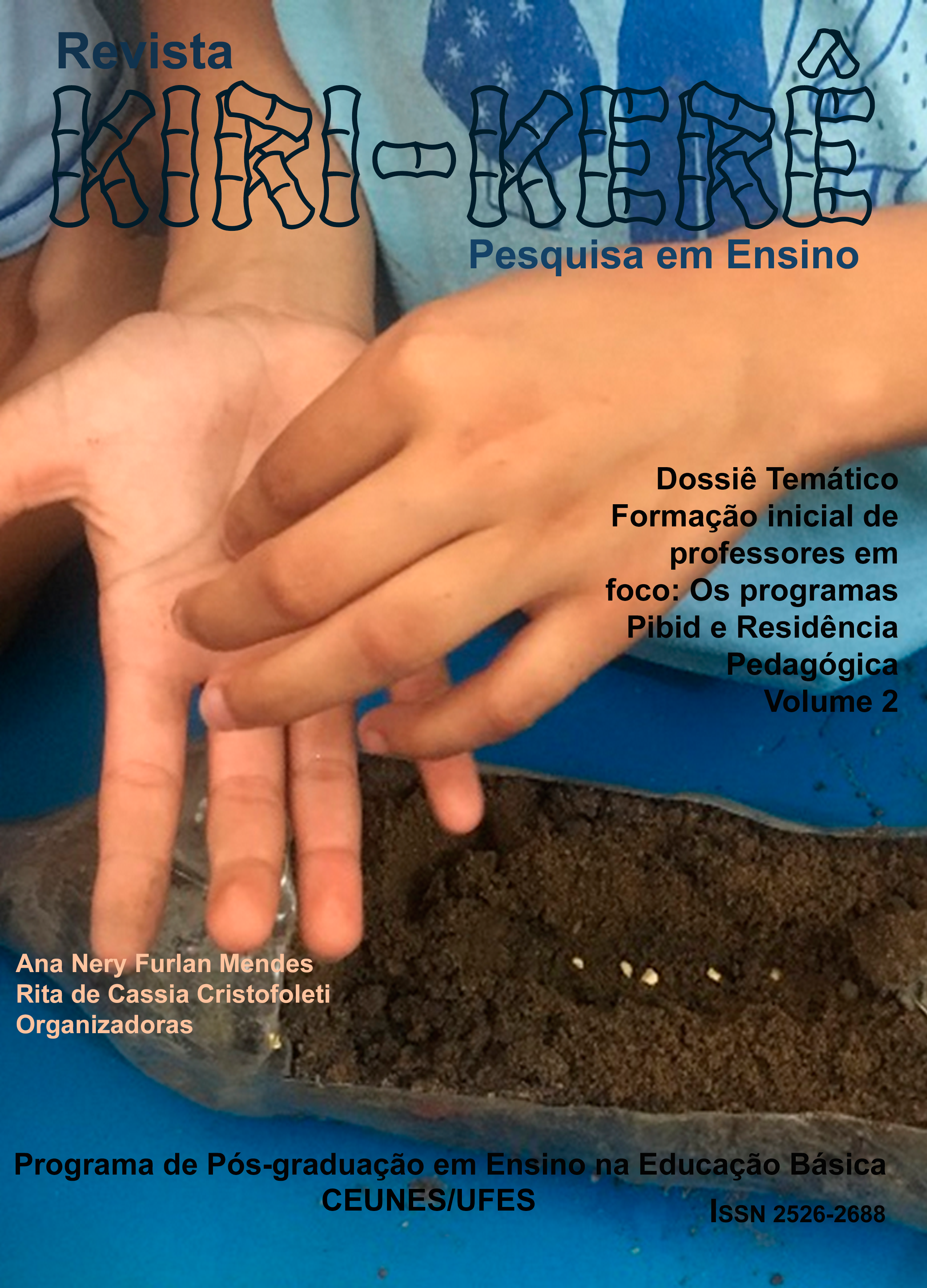The action of Pibid in the school environment: the use of chemical balancing and the making of a video clip in the process of teaching and learning chemistry
DOI:
https://doi.org/10.47456/krkr.v2i5.32610Abstract
The teaching of chemistry requires that alternative methodologies be proposed to make it more attractive and contextualized for students. This study allowed a reflection on different teaching resources and evaluated how these resources are received and used by students in the learning of some chemistry contents. The research was carried out in 8 high school classes of a public school in the city of São Mateus/ES, being 6 of first grade and 2 of second grade. For the first grade classes it was proposed that the students create a parody and build a video clip about the contents of the Periodic Table. For the second grade classes a game about the Balance of Chemical Reactions was developed by the Pibidians and applied to the students, as a way to complement the content explained by the teacher in class. The criterion adopted for the selection of the contents was the difficulty that the students present in understanding these subjects. To assess methodological practice, in the first grades, a questionnaire was applied to students at the end of the proposal, and in the second grades, observation and recording of students' impressions was used. The teacher and the PIBID scholarship holders mediated the teaching and learning process, motivating the students to participate in the activities. The methodologies were very well accepted by the students, who claimed to have learned more about the content under study. For PIBID scholarship holders, the realization of these classes was a way to experience the reality of the classroom and build their identity as teachers.
Downloads
Downloads
Published
Issue
Section
License
The authors accept, when sending their works, the assignment of their copyrights.

